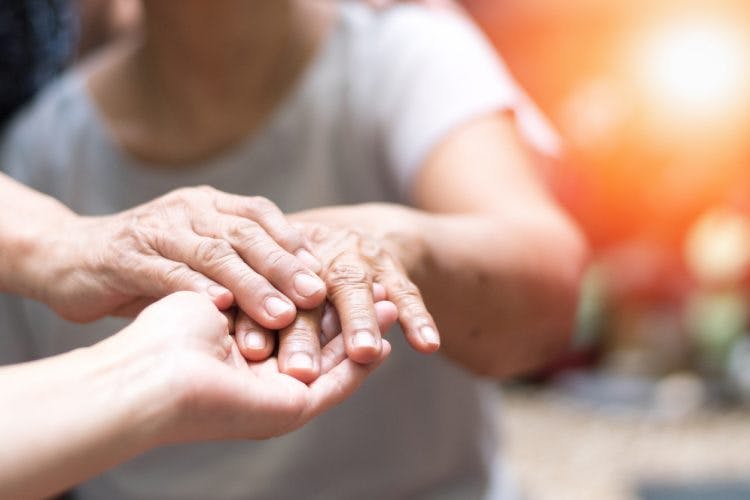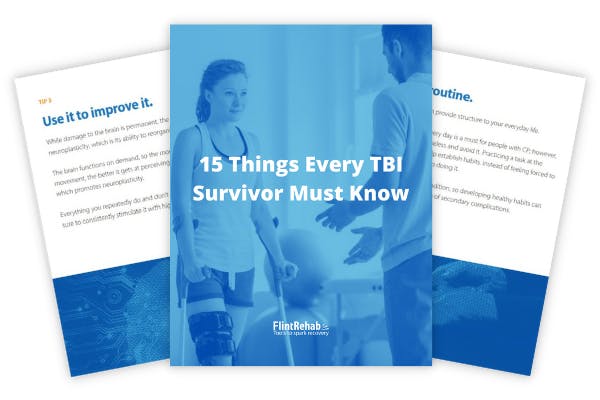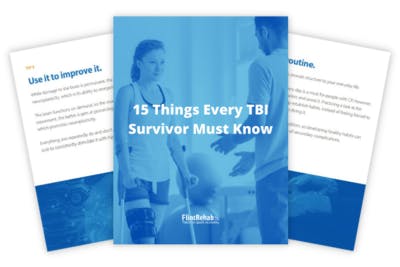No products in the cart.
No products in the cart.
No products in the cart.
No products in the cart.
Home » Neurological Recovery Blog » Traumatic Brain Injury » Can Head Injury Cause Parkinson’s Disease? Understanding the Link
Last updated on July 23, 2024

Can head injury cause Parkinson’s Disease? And does a traumatic brain injury increase a person’s chances of developing Parkinson’s?
Although it is rare for a head injury to cause Parkinson’s Disease, it is a possible secondary effect you should be aware of. Head injuries can also trigger certain movement disorders that look similar to Parkinson’s Disease but are different.
This article explains the link between brain injury and Parkinson’s Disease. In addition, we’ll describe the latest treatments for Parkinson’s Disease and other motor problems after a head injury.
Parkinson’s Disease (PD) is a disorder of the central nervous system that interrupts the fluidity of movement. With PD, certain neurons in the area of the brain called the substantia nigra break down and die. These neurons produce the chemical dopamine.
Dopamine acts as a messenger between the parts of the brain and nervous system that coordinate movement. Therefore, when dopamine levels decrease in the brain, abnormal and slowed movements result.
The symptoms of PD only appear when 80% of the neurons in the substantia nigra have died. PD is considered to be a slow progressive disease. The precise cause of PD is still unknown; however, it is most likely due to a combination of genetic and environmental factors. This is why the question arises, can head injury cause Parkinson’s Disease.
According to a study published in the Journal Neurology, a head injury, specifically a mild traumatic brain injury (TBI), is associated with increased risk of PD. The study was conducted using the VA’s databases and identified all patients treated by the VA with TBI. The results found that:
Although head injury does increase a person’s risk of PD, it should be noted that the likelihood of developing the disease is still relatively low. In fact, in the study, only about 1% of patients were diagnosed with PD.
What is more likely, however, is that a person might develop a form of Parkinsonism.
Parkinsonism is an umbrella term used to describe a group of movement disorders that share similar symptoms.
The signs of Parkinsonism include:
Parkinsonism can also cause people to perform uncontrolled, repetitive movements, known as “tics.”
PD is the most common type of Parkinsonism, but there are other types that have more specific causes, such as:
Whether you have PD or some other form of Parkinsonism, treatment will mostly likely be identical.
There is currently no cure for PD. However, it is possible to treat the symptoms through physical therapy and medications.
Physical therapy can help you improve muscle strength and control, which might help reduce tremors and dystonia, both common symptoms of Parkinsonism. PT exercises will activate the brain’s neuroplasticity, which rewires the brain and strengthens the neural signals sent to your muscles.
If these stronger signals can get to the muscles affected by tremors, it could reduce them. Therapists can also fit you with orthotic braces or weights, which may stop tremors by keeping the affected muscles stable. It is not a permanent fix, but it is sometimes enough to restore function.
Parkinson’s Disease is mainly known for causing hand tremors and slowed movement, but it can also impair speech. For example, tremors can affect a person’s vocal cords or other muscles in the throat, making it difficult to swallow or talk.
Fortunately, there are speech therapists who are trained in a technique called Lee Silverman Voice Treatment (LSVT), a therapy designed specifically for patients with PD. The LSVT is an intensive therapy involving 16 sessions in one month, but it can greatly improve a person’s quality of life.
To learn more about LSVT and find a qualified speech therapist, click here.
Medications for Parkinsonism are mostly focused on increasing dopamine levels in the brain. Some of the most common medications prescribed include:
Many of these medications can have serious side effects, such as drowsiness, hallucinations, and compulsive behavior. Therefore, make sure to have close supervision from your doctor. Expect some trial and error before you determine your best dose
In some Parkinsonism cases, a doctor might recommend surgical interventions to treat tremors and other symptoms.
Deep brain stimulation (DBS) is the most effective surgical treatment for tremors and dyskinesias. It uses surgically implanted electrodes to send high-frequency signals to the subthalamic nucleus or the globus pallidus, structures in the brain that control movement timing.
The electrical signals are sent from a small device, similar to a pacemaker, that is placed under the skin in the person’s chest. When the signals reach the brain, they minimize tremors.
DBS is effective at minimizing tremors and has been approved by the FDA as a treatment for Parkinson’s Disease. While more studies are still needed before it is approved for post-traumatic Parkinsonism, the current research is promising.
However, deep brain stimulation is an invasive surgery, making it the riskiest treatment option. Some possible side effects include dysarthria (slurred speech) and a small number of people living with PD have experienced cognitive decline after DBS surgery. DBS is reserved for patients who do not respond well to the medications for tremors or those experiencing medication-induced dyskinesias.
Head injuries can increase a person’s risk of developing Parkinson’s Disease and other forms of Parkinsonism. However, even with the increased risk, it is still a rare side effect of brain injury. Only about 1% of TBI patients will experience Parkinsonism.
If you do end up diagnosed with post-traumatic Parkinsonism, treatment will most likely involve a combination of physical therapy and medication.

If you like our content, you’ll love our ebook and newsletters! Get instant access to our TBI recovery tips ebook with 20 pages of helpful advice by signing up below.
You’ll also receive our emails that share survivor stories and more useful TBI recovery tips, which you can opt out of at any time. (We know you’ll love them, too.)
We will never sell your email address, and we never spam. That we promise.


Time with a speech therapist is extremely valuable during recovery, especially if you struggle with communication, critical thinking, or memory after brain injury. Insurance typically covers speech therapy for a fixed amount of time. But once it’s over, recovery is in your hands.
That’s why a team of neuroscientists and clinicians from Boston University created the CT Speech & Cognitive Therapy app. Designed for those recovering from stroke, TBI, or living with neurological conditions, the app contains over 100,000 cognitive exercises that are all available right from your phone or tablet. That’s like having a speech therapist by your side whenever you want!
This app is the perfect fit if you want to improve your speaking, memory, or general mental sharpness. And, it’s affordable at just $29.99/month!
“For the past 6 months, my son has used the app about three times a week. The app is like a virtual therapist, it’s very easy to use, and it gives him immediate feedback.
He now understands things faster, can make decisions with less hesitation, has improved recognition of words, and his confidence is higher. I also find it easy to get in touch with customer service; they pleasantly help out. The whole experience has been great.”
— Miriam
With the CT App, you can get the guidance you need right from your phone or tablet. You can use it on your own or in between sessions with your speech therapist.
Whether you struggle with aphasia, memory loss, or critical thinking, the CT Speech & Cognitive Therapy App can help.
“The CT app has helped me gather my confidence by building on and reinforcing old forgotten skills. It helps to see my percentages increase, and work harder when they decrease. It’s very self-motivating.” -Kathryn
We are confident that this app will help improve your speech and cognitive function after brain injury. Like our recovery tools, the CT App is also covered by our 30-day money-back guarantee.

Do you know these 15 TBI recovery tips?
Get a free copy of our ebook 15 Things Every TBI Survivor Must Know. Click here to get instant access.
Grab a free rehab exercise ebook!
Sign up to receive a free PDF ebook with recovery exercises for stroke, traumatic brain injury, or spinal cord injury below: